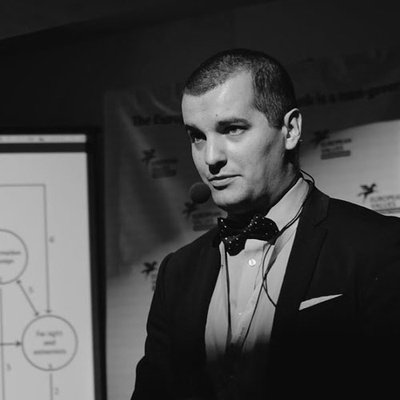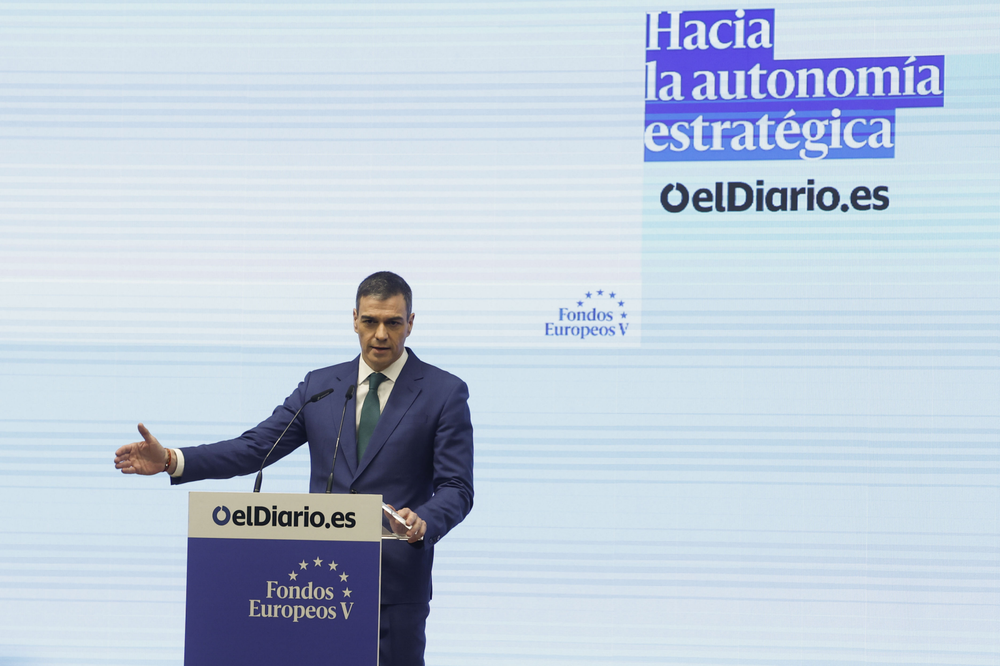
- #Europe
- #Global Issues

- ► Europe’s Strategic Autonomy is Strengthening: European nations are increasing defense spending, reducing energy dependence on Russia, and pursuing economic de-risking from China, primarily through NATO and EU frameworks.
► Limited European Military Role in Indo-Pacific Crises: In the event of a China-led escalation in the Indo-Pacific, Europe is unlikely to provide significant military support due to its own vulnerabilities and the need to deter potential Russian aggression.
► Opportunities for Indo-Pacific Allies in Europe’s Shift: Europe’s defense and green energy transitions offer strategic economic collaboration opportunities for Indo-Pacific democracies, especially in building China-free supply chains.
Before
analyzing the implications of European policy shifts on strategic autonomy for
U.S. allies in the Indo-Pacific, it is first necessary to assess what Europe is
actually doing. For the purposes of this analysis, we can summarize this
phenomenon in three specific segments.
First,
European countries are urgently boosting their defense budgets in light of the
increased military threat posed by Russia and fears of the United States
reducing its military engagement in Europe. Most of these policies are
implemented through NATO structures, with a few managed via EU channels,
particularly in defense industry funding cooperation and research. European
states are increasing their defense build-ups to levels comparable to the Cold
War era as the Russian war in Ukraine continues. European policymakers are also
closely monitoring the existential scope of Chinese political, material,
financial, and technological support for Russia’s war of aggression in Ukraine.
Second,
European countries are rapidly developing policies in response to China’s
rising aggressiveness. Most such initiatives fall under the EU umbrella and
focus on economic security and industrial policies aimed at countering Chinese
strategic ambitions. The overall goal is typically described as “de-risking”
from China. While this policy direction is now mainstream in most European
national political discourses, the practical impact on the majority of European
industries outside security-linked sectors remains to be seen, as such policies
entail economic costs. Consequently, few European politicians are pushing for
rapid de-risking from China, as their domestic industries and constituencies
often fear Chinese economic retaliation, which could lead to job losses and,
ultimately, electoral defeat at the national level.
Third,
Europe is undergoing a broad energy transition, generally summarized as Green
Deal policies. While the overarching aim is for Europe to become
carbon-neutral, some of these initiatives have major geopolitical implications:
from effectively decoupling much of Europe from fossil energy imports from
Russia for security reasons, to transforming the bulk of European industries
toward sustainable energy sources. One side effect is a strategic dependency of
European countries on China in selected segments of green energy, which poses a
significant risk by enabling economic coercion by Beijing in times of future
contingencies.
#1 Impact
of European Strategic Autonomy Efforts: European Role in a China-led
Contingency
A common
question among policymakers in Seoul, Tokyo, Taipei, Manila, or Canberra is: if
China escalates in the Indo-Pacific, what would Europe do? Despite Europe’s
economic security de-risking efforts so far, the continent remains deeply
vulnerable to Chinese strategic economic blackmail. If China escalates against
Taiwan or if a regional contingency involving joint Russian, Chinese, and North
Korean aggression occurs, Europe would likely face two distinct pressures to
act. The U.S. would probably withdraw most of its Navy and Air Force assets
from Europe and redeploy them to the crisis area. Washington would almost
certainly push European capitals to initiate severe EU economic sanctions on
China to persuade the Chinese Communist Party leadership that further
escalation would mean losing access to the European market, in addition to
ending trade relations with the U.S. Such an economic warfare plan between
Europe and the U.S. would threaten the survival of the Chinese Communist Party
regime, as its economic stability would be badly damaged in the medium term.
Simultaneously, China would likely use all its economic and technological
leverage across European states to ensure that EU sanction packages are not
activated, as many European capitals might reconsider due to their deep
domestic vulnerabilities. Despite some European powers signalling intent
through Freedom of Navigation operations in recent years, Europe would almost
certainly not provide significant military assets to aid U.S. Indo-Pacific
allies. The hard reality is that if China escalates in the Indo-Pacific, there
is a high chance that Russia, as its de facto ally, would try to exploit the
expected U.S. military withdrawal from the European theater to at least
threaten European democracies with military escalation. Therefore, nearly all
European naval and air force assets would be positioned around NATO’s Eastern
Flank to ideally deter Russian hostilities or defend against them directly.
#2 Impact
of European Strategic Autonomy Efforts: Coordinating Approaches to the U.S.
It is a
fact that U.S. allies in Europe and those in the Indo-Pacific often compete for
U.S. political attention, as well as for prioritization of military assets and
materiel. All of these resources naturally exist in a zero-sum context. Since
the Trump Administration appears to be oscillating between isolationist and
prioritization strategies, competition among U.S. allies for resources is
expected to intensify. While it might seem pragmatically beneficial for South
Korea, Japan, or Taiwan to push Washington for absolute prioritization of their
theater, such a stance may ultimately be short-sighted for their national
security interests. If the U.S. were to swiftly withdraw from Europe in terms
of military presence and reassurance to redeploy most of its assets to the
INDOPACOM Area of Responsibility (or partly to CENTCOM, given interlinks in
China-led contingency planning), such a geostrategic decision might signal to
Russian leadership that a historic window of opportunity for invading the
Baltic states could arise in the next two to three years. A Russian military
attack on NATO might not seem so different from the current Russian war in
Ukraine in the eyes of U.S. Indo-Pacific allies, but such a contingency would
rapidly escalate into most European states being at war with invading Russian
forces. The resulting geo-economic implications would severely impact all of
Asia. While it is clearly in the interest of Indo-Pacific democracies to have
as many U.S. strategic and military resources as possible available to deter
Chinese escalation in Asia, strategic and operational re-shifting would, in
effect, lead to a Russian war with NATO, with catastrophic geo-economic
consequences for Asia. Such a European contingency might even prompt China to
accelerate its escalation timelines in East Asia. Therefore, U.S. Indo-Pacific
allies should coordinate directly with their European counterparts to balance
the ongoing U.S. prioritization of the China threat and avoid appearing weak to
Russian and Chinese dictatorships in both theaters.
#3 Impact
of European Strategic Autonomy Efforts: Pragmatic Cooperation in Global
De-risking from China
European
rearmament efforts and massive energy transition initiatives provide pragmatic
economic opportunities for strong, friendly economies such as South Korea,
Japan, Taiwan, or Australia. Fears of future contingencies have led some states
to push for China-free supply chains in specific industries, which is precisely
where such cooperation would make strategic sense. Given the existing economic,
material, and technological dependencies of European and Indo-Pacific
democracies on China, urgent prioritization of the most vulnerable sectors
should be placed on the agenda. While natural commercial competition often
makes strategic policies of de-risking from China-led supply chains
significantly difficult in practice, this is where governments must intervene
and initiate industrial strategies with sufficient funding to incentivize
industries to diversify away from China in favor of friend-shoring. Outside of
military build-ups, there are no more pressing, survival-oriented priorities
for national governments, as the China-Russia-Iran-North Korea axis is clearly
preparing for a global conflict in the coming years. Protectionist policies of
the Trump Administration make such geo-economic efforts more challenging, but
this is precisely why U.S. allies in Europe and the Indo-Pacific should engage
directly and strike compromises across these strategic industrial initiatives
under the economic security umbrella.

Jakub Janda specializes in European policy to Russia and China, also specifically to the response of democratic states to hostile influence operations. Outside of his civilian job, he serves as an officer of Active Reserves of the Czech Armed Forces within the Czech Cyber and Information Warfare Command. Between 2016 – 2017, he was tasked by Czech security and intelligence institutions to consult on “the Influence of Foreign Powers” chapter within the Audit of National Security conducted by the Czech government, where he was involved in the Czech policy shift on this issue. Since 2015, he has been asked to provide briefings and trainings in more than 20 countries. He has delivered expert briefings and testimonies to Members of the U.S. Congress, NATO Political Committee or to the European Parliament Special Committee on Foreign Interference in all Democratic Processes in the European Union, including Disinformation (INGE). In January 2022, he established EVC Taiwan Office, making EVC the first European think-tank to set up permanent presence in Taiwan. Between 2024 and 2025, he served as visiting fellow at Taiwanese Defense Ministry think-tank, the Institute of National Defence and Security Research (INDSR), conducting simulations of Chinese operations against Taiwan and its implications for European security.